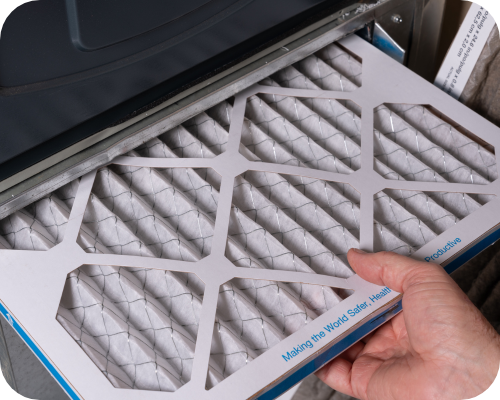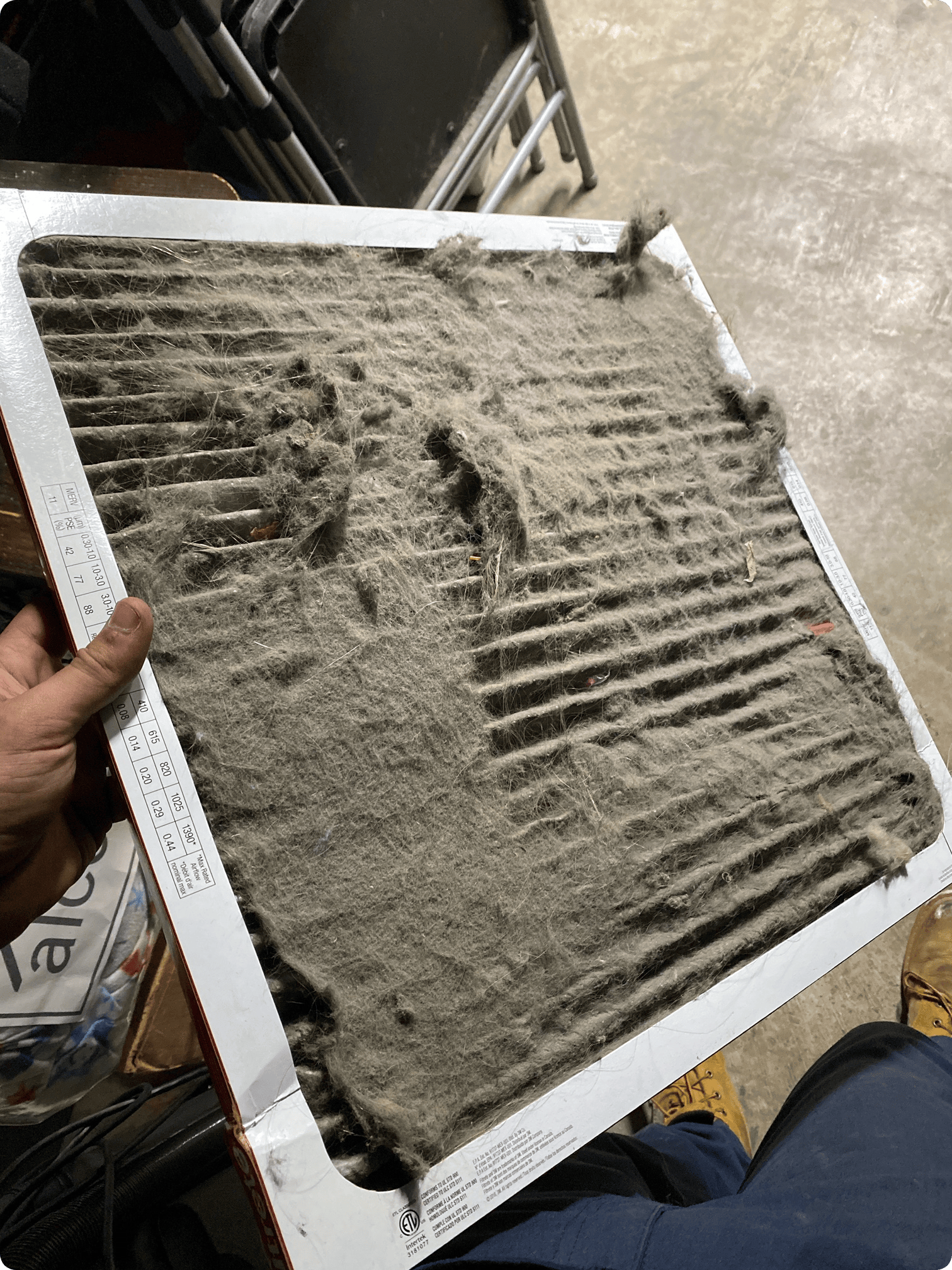How To Replace Your Air Filter
 One of the simplest tasks that often goes forgotten is replacing your air filter in your HVAC system. It’s easy to do, and relatively inexpensive, but still we go to homes all the time that have air filters that look like they are growing fur when we replace them. Not only does changing the air filter help the air flow better, but it also cleans the air and makes it healthier to breathe.
One of the simplest tasks that often goes forgotten is replacing your air filter in your HVAC system. It’s easy to do, and relatively inexpensive, but still we go to homes all the time that have air filters that look like they are growing fur when we replace them. Not only does changing the air filter help the air flow better, but it also cleans the air and makes it healthier to breathe.
I’ve been servicing and repairing HVAC systems for 20+ years, and have seen all kinds of filters that have been FAR past their time for a change. In certain cases, this was the reason a system may have been short cycling, and is luckily an easy fix.
In this blog, we’ll guide you through the reasons for replacing your air filter, the benefits that come along with it, and the steps to ensure you’re doing it correctly.
Why Should I Replace My Air Filter?
Improved Indoor Air Quality
The primary role of your air filter is to trap and contain various airborne particles like dust, pollen, pet dander, and other allergens.After a while, your filter is going to fill up with all of this stuff. A clean air filter ensures that the air circulating in your home is as free from contaminants as possible, leading to healthier air to breathe. For individuals with allergies or respiratory issues, we recommend changing your air filters even more frequently to keep the air cleaner and easier to breathe. You may also want to consider an upgraded filter with a higher MERV rating.
Better For Your HVAC System
A dirty air filter forces your HVAC system to work harder, which can lead to increased energy consumption and higher utility bills. Additionally, when airflow is restricted due to a clogged filter, it can cause strain on the system, leading to potential malfunctions or a shortened lifespan.
As we mentioned, we’ve seen systems that either short cycle, because the air is building up and pushing back at the system due to a clogged filter. We’ve also seen some systems that don’t stop running because the air never reaches the desired temperature, due to restricted air flow.
Regularly replacing your air filter can prevent these issues, ensuring your system runs more efficiently and improves your HVAC system’s lifespan.
Improved Airflow In Your Home
A clean air filter allows for smoother airflow throughout your home. This means a more even distribution of temperature, be it warm or cool air, depending on the season. It also helps in eliminating hot or cold spots in different areas of your home that could creep up if the airflow in your home is restricted.
How Often Should You Replace Your Air Filter?
The frequency of replacing your air filter depends on several factors, including the type of filter, the size of your home, and if there are pets or individuals with allergies. As a general rule, it’s advisable to check your air filter monthly and aim to replace it every 90 days. However, homes with pets or allergy sufferers might benefit from more frequent changes, such as every 60 days.
We recommend buying a few filters at a time, so you can easily switch them out, without having to run to a hardware store.
What Kind Of Filter Do You Need?
 We recommend asking your HVAC technician what they recommend when it comes to an air filter. Certain manufacturers have particular brands of filters they use, and there may be a brand that matches your HVAC system perfectly. Air filters come in different types and sizes, and choosing the wrong one can negatively impact your HVAC system’s performance. The key factors to when buying a air filter include:
We recommend asking your HVAC technician what they recommend when it comes to an air filter. Certain manufacturers have particular brands of filters they use, and there may be a brand that matches your HVAC system perfectly. Air filters come in different types and sizes, and choosing the wrong one can negatively impact your HVAC system’s performance. The key factors to when buying a air filter include:
- Size: Ensure you know the correct size for your HVAC system. This is typically printed on the side of your current filter.
- Type: Filters range from disposable fiberglass filters, which are less expensive but less effective, to pleated and HEPA filters, which offer superior filtration. We recommend asking your HVAC technician.
- MERV Rating: The Minimum Efficiency Reporting Value (MERV) rating indicates how well the filter captures particles. Higher MERV ratings mean better filtration but ensure your HVAC system can handle the specific rating you choose. Some of the higher rated filters may actually restrict airflow, and also negatively affect your HVAC system.
Steps To Replace Your Air Filter
- Locate Your Filter: The air filter is usually found in the return air duct or blower compartment before the return air reaches the air handler. This is another thing your HVAC contractor can show you when they perform routine service.
- Turn Off Your HVAC System: Always turn off your system before replacing the filter to avoid any complications.
- Remove The Old Filter: Slide out the old filter and dispose of it properly.
- Insert The New Filter: Ensure the arrows on the filter frame point towards the furnace/air handler, indicating the direction of airflow.
- Turn the System Back On: Once the new filter is in place, turn your system back on.
- Regular Checks: Remember to check your filter regularly and mark your calendar for the next replacement. Set an appointment on the calendar in your phone so you know exactly when you should change it in a few months!
If you live in the Elgin, IL area and are looking for routine service for your HVAC system. give us a call at (630) 504-8688, or contact us online to schedule an appointment!


